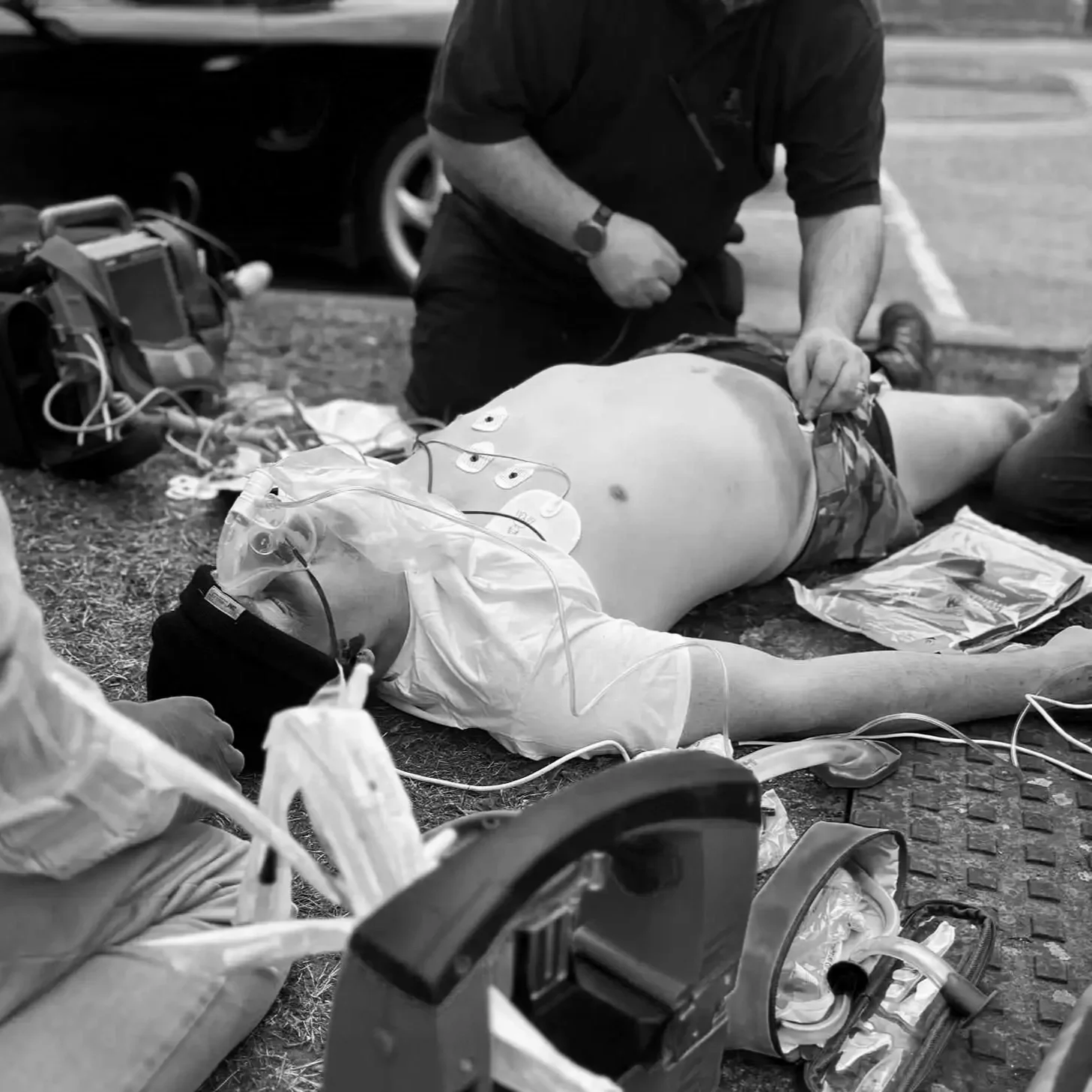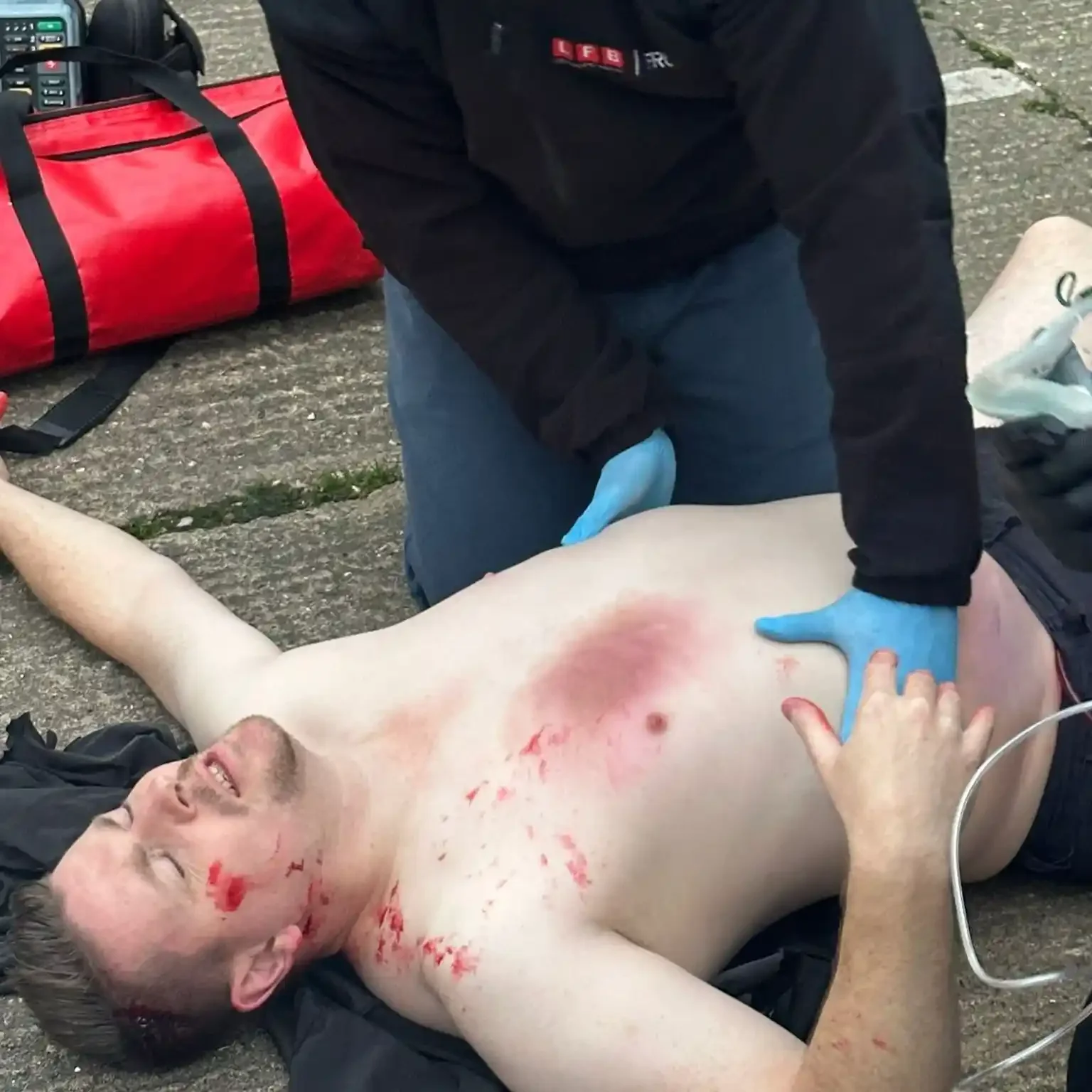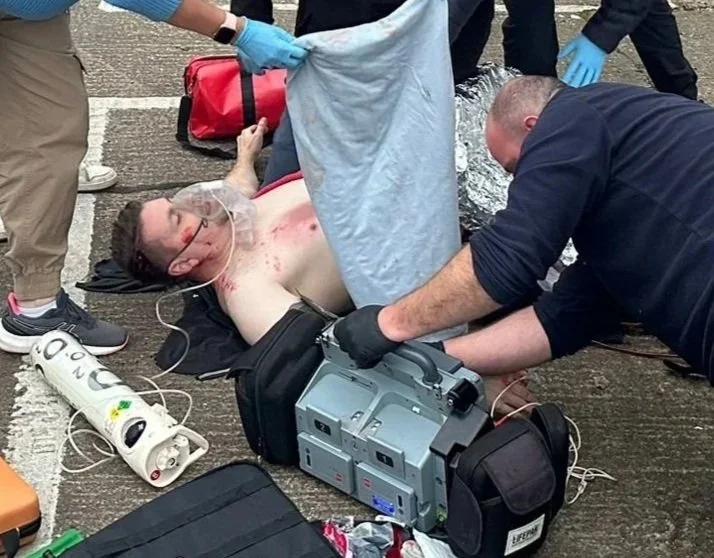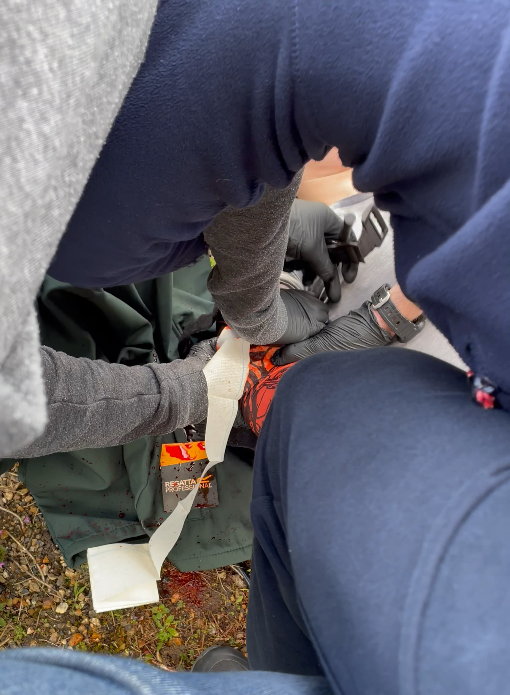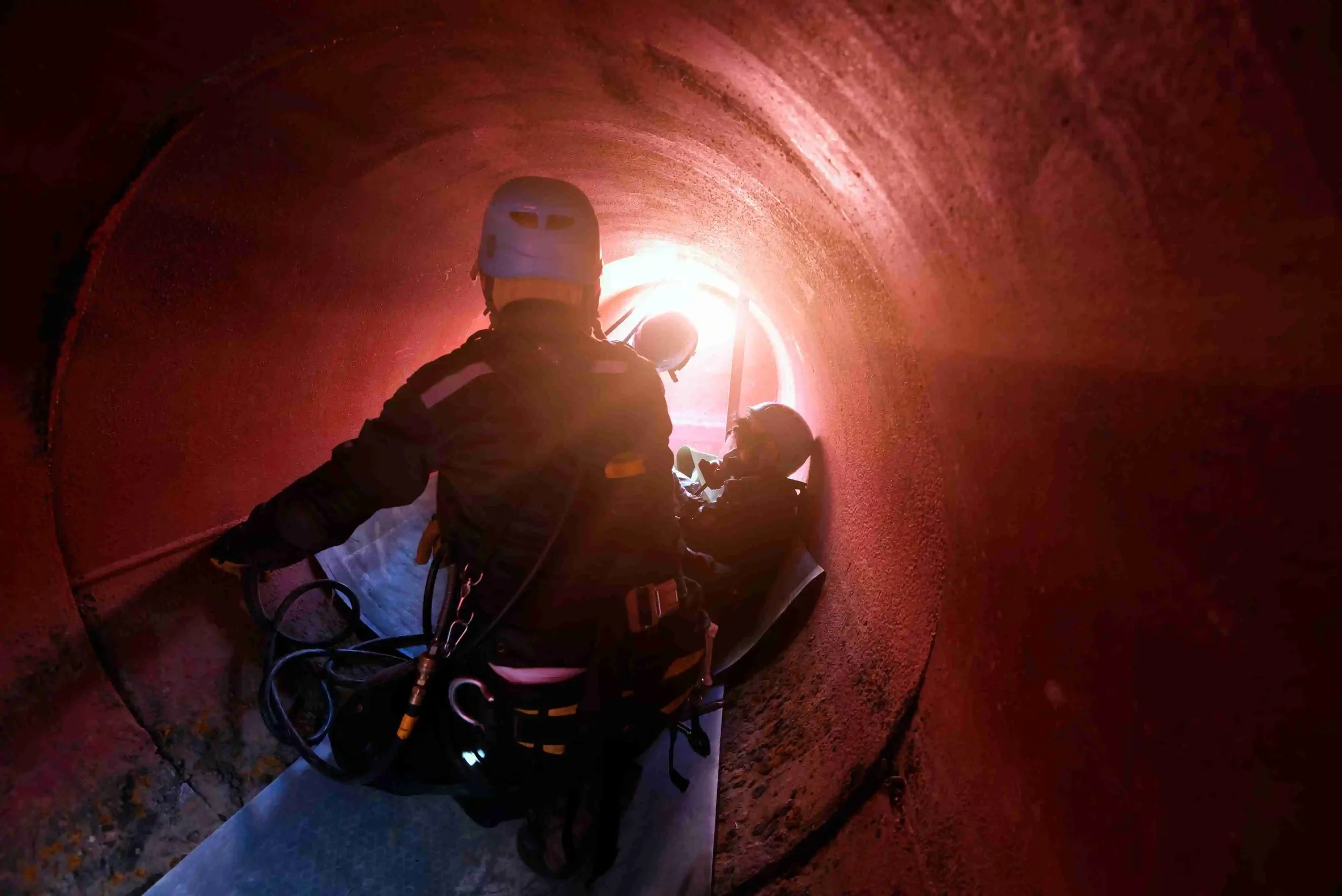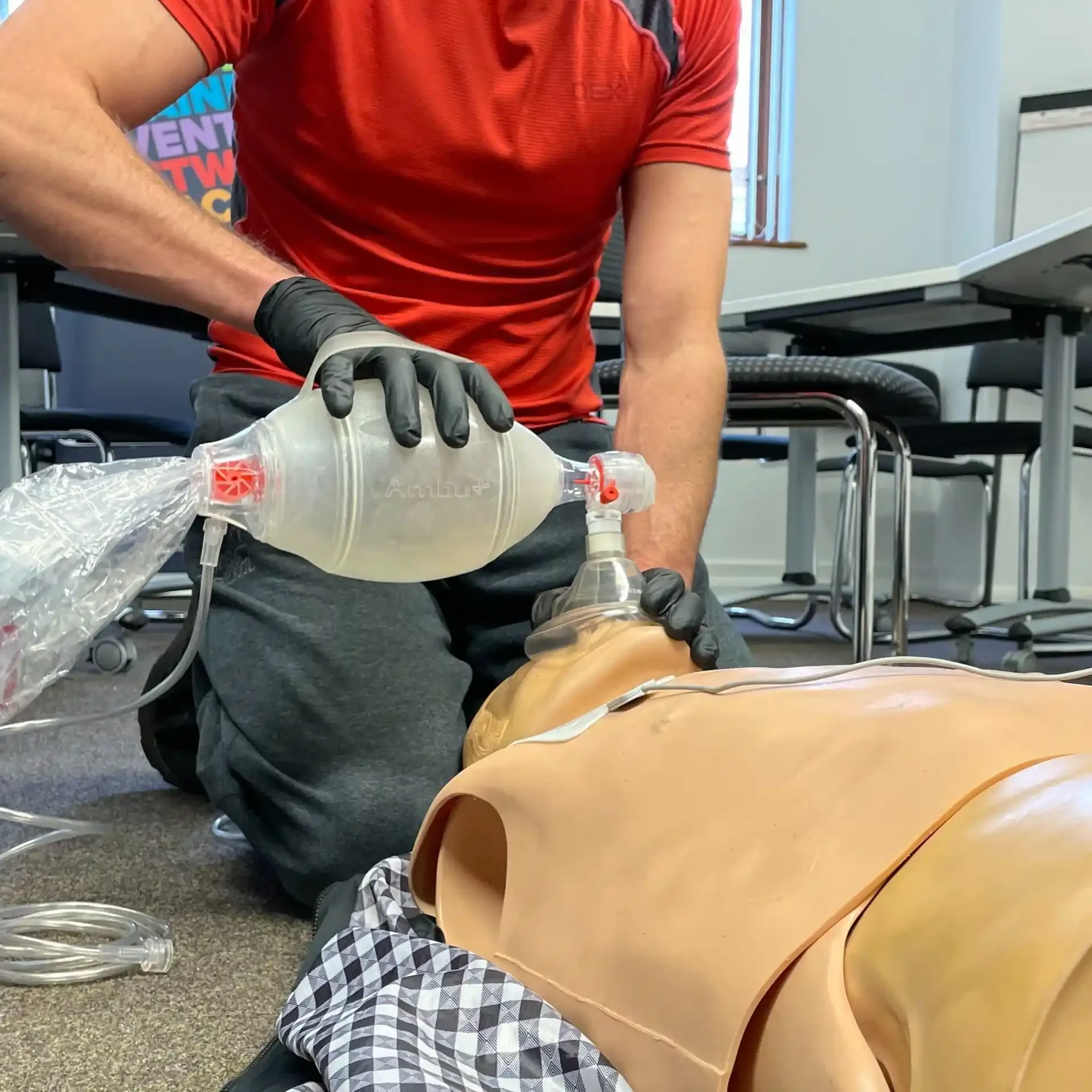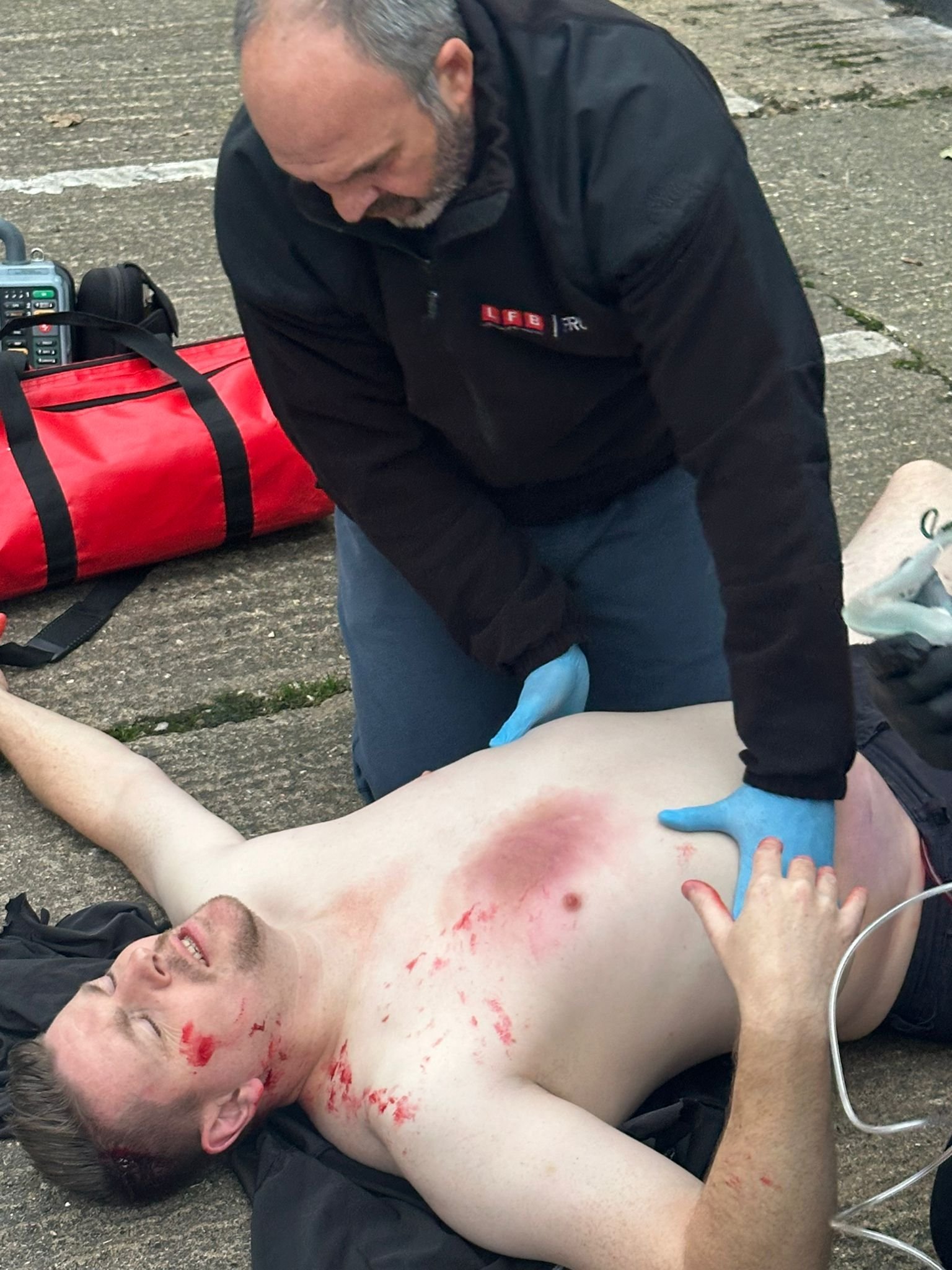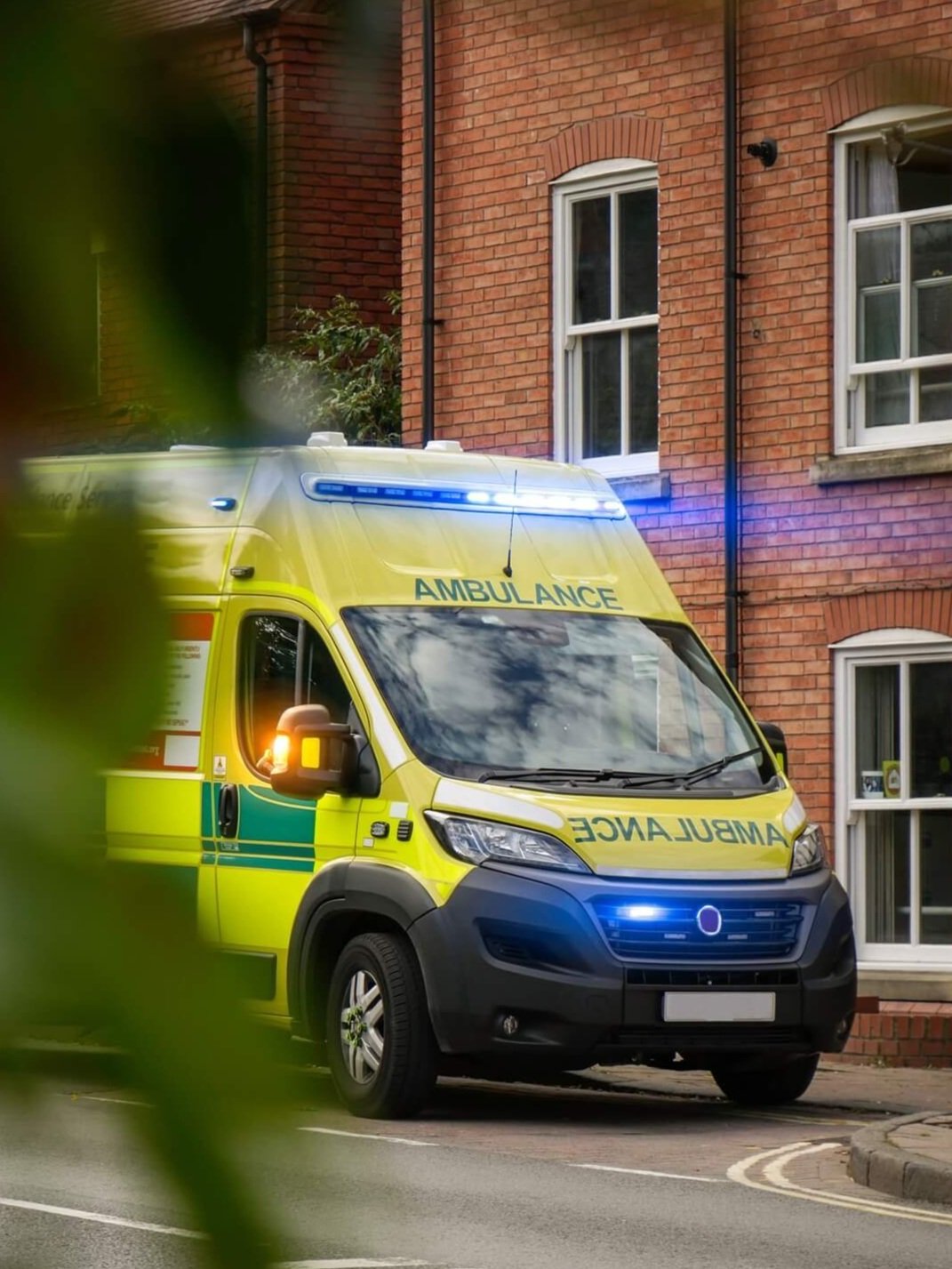Why FREC 3 is Essential for SIA and Close Protection Operatives in Europe
Holding a qualification such as FREC 3 (First Response Emergency Care Level 3) is crucial for SIA (Security Industry Authority) licensed and close protection operatives for several reasons:
Enhanced Emergency Response Skills: FREC 3 provides comprehensive training in emergency care, equipping operatives with the skills to handle a wide range of medical emergencies, including trauma and life-threatening situations. This is particularly important in high-risk security environments where injuries can occur.
Regulatory Compliance: In some regions, having a formal medical training certification, such as FREC 3, may be a regulatory or contractual requirement for security operatives. It ensures that personnel are prepared to manage health emergencies effectively, aligning with industry standards and legal requirements.
Professional Credibility and Trust: Close protection operatives often work in direct contact with clients who expect a high level of competence and professionalism. A FREC 3 qualification enhances an operative's credibility, demonstrating a commitment to safety and the well-being of clients and colleagues.
Operational Effectiveness: The skills acquired through FREC 3 training can significantly improve the overall effectiveness of security operations. Operatives can provide immediate and competent care in emergency situations, potentially saving lives and reducing the severity of injuries before emergency medical services arrive.
Increased Employability: Having a FREC 3 qualification can make operatives more attractive to employers who value the added layer of competence and preparedness it brings, potentially opening up more job opportunities and career advancement.
Overall, FREC 3 training aligns with the high standards expected in security and close protection roles, where the ability to respond effectively to medical emergencies can be just as critical as managing security threats.
The advantage of holding a FREC3 qualification for those working all across Europe.
Having the FREC 3 qualification is advantageous for operatives working across Europe for several key reasons:
Standardisation of Training: FREC 3 provides a standardised level of emergency care training. This is particularly beneficial in the diverse regulatory environment of Europe, where having a consistent and recognised qualification can simplify compliance across different countries' regulations.
Enhanced Mobility: Operatives with a FREC 3 qualification are better positioned to work across different European countries. This qualification is often recognized by employers and clients throughout Europe, facilitating easier movement and employment opportunities across national borders within the security industry.
Broad Relevance: The skills taught in FREC 3 are universally applicable, regardless of the country. This includes managing trauma, handling emergencies in hostile environments, and providing life support. Such skills are crucial given the varying emergency response times and medical services across Europe.
Increased Confidence Among Clients: Clients across Europe are likely to feel more confident in the capabilities of operatives who possess internationally recognised qualifications like FREC 3. This can be a decisive factor in contract negotiations and assignments where client safety and health are priorities.
Language and Cultural Competence: While FREC 3 itself is a medical training program, operatives working in a multi-country context such as Europe benefit from the interaction with diverse training groups that often come with such courses. This can improve their language skills and cultural understanding, which are essential in providing effective protection and emergency care in a culturally diverse region like Europe.
Preparedness for Diverse Scenarios: Europe can present a range of security challenges, from urban terrorism to rural isolation where emergency services might be delayed. FREC 3 training prepares operatives to handle medical emergencies effectively in any setting, enhancing their ability to adapt to and manage diverse scenarios.
Therefore, FREC 3 not only equips operatives with vital medical skills but also enhances their professional mobility, adaptability, and effectiveness across the European security landscape.
Given the difficulties operatives may face working across Europe in a security setting, how can FREC3 support individuals to combat these?
Working across Europe in a security setting, operatives face a variety of challenges, which can be broadly categorized into logistical, legal, cultural, and operational difficulties;
Legal and Regulatory Variations: Different countries within Europe have diverse legal frameworks and regulations governing security operations and medical interventions. Navigating these can be complex for operatives who work across borders.
Language Barriers: Communication is critical in security operations. Language differences can pose significant challenges in emergencies, where clear and rapid communication is crucial.
Cultural Differences: Understanding local customs and social norms is vital for effective interaction with clients and the public. Misunderstandings arising from cultural differences can lead to ineffective communication and operational errors.
Emergency Response Variability: The standard and availability of emergency services can vary greatly between rural and urban areas, as well as between countries in Europe. This can impact the operative’s ability to manage emergencies effectively.
Geographical and Environmental Challenges: Europe's diverse geography and climates require operatives to be adaptable to everything from urban settings to remote, harsh terrains, which can affect how security operations are conducted.
How FREC 3 Can Support Operatives:
FREC 3 training can significantly mitigate these risks by providing:
Comprehensive Medical Training: Equipping operatives with skills to handle a wide range of medical emergencies, thereby reducing reliance on local emergency services, which may be variable or delayed, especially in remote areas.
Standardisation of Care: Offering a standardised approach to emergency care that is applicable across different European countries, helping operatives manage the medical aspects of their roles within a consistent framework, irrespective of local regulations.
Enhanced Decision-Making: Training operatives in assessment and decision-making under pressure, which is critical when dealing with the unpredictability of working in diverse environments and under different legal systems.
Increased Professionalism and Confidence: The qualification boosts the operative’s professionalism and confidence, enhancing their credibility with clients and colleagues and improving their ability to act decisively and effectively in critical situations.
Cultural Sensitivity Training: While primarily focused on medical care, the training environment for FREC 3 can expose operatives to peers from various backgrounds, potentially increasing cultural awareness and sensitivity, which is beneficial in diverse settings.
By addressing the core need for reliable, high-level medical skills and offering a framework for understanding and responding to emergencies, FREC 3 training empowers operatives to be more effective and adaptable in their roles across Europe.
NR Medical Training has developed a robust capacity to travel across Europe to deliver FREC 3 training directly to security operatives, regardless of their location. Here’s how we’ve geared up to support training needs across the continent:
1. Mobile Training Teams
We have established mobile training teams consisting of experienced instructors who are experts in emergency care and adept at teaching in diverse settings. These teams are equipped to travel to various European locations, bringing all necessary training materials and equipment with them. This mobility ensures that we can offer high-quality, consistent training in any setting required by our clients.
2. Logistical Coordination
We have invested in a dedicated logistics team that manages all aspects of course delivery abroad, from transporting training materials and equipment to arranging accommodation and travel for our instructors. This logistical support ensures that courses are delivered smoothly and without disruption, regardless of location.
3. Customized Training Options
Understanding the diverse needs of security operatives across Europe, we offer customized training modules that can be adapted to the specific risks and scenarios relevant to the operatives’ locations and roles. This bespoke approach ensures that the training is directly applicable and maximally beneficial to those attending.
4. Regulatory Compliance Expertise
Our team stays continuously updated on the varying regulations and compliance requirements across European countries. This knowledge allows us to ensure that all training provided meets local standards and certifications, thereby making the qualifications obtained through our courses valid and recognized across borders.
5. Multilingual Capability
Recognizing the linguistic diversity of Europe, our instructors are selected not only for their expertise in emergency care but also for their language skills. Where needed, we also provide translators to ensure that the training is effective and comprehensible to all participants.
6. Feedback and Continuous Improvement
Post-training, we engage in rigorous feedback collection and analysis from all stakeholders. This feedback informs ongoing improvements and adaptations in our training programs, ensuring they remain effective and responsive to the evolving needs of security operatives across Europe.
Through these strategic initiatives, NR Medical Training ensures comprehensive support for FREC 3 training requirements across Europe, making high-quality emergency care training accessible to security operatives, wherever they may be located.


